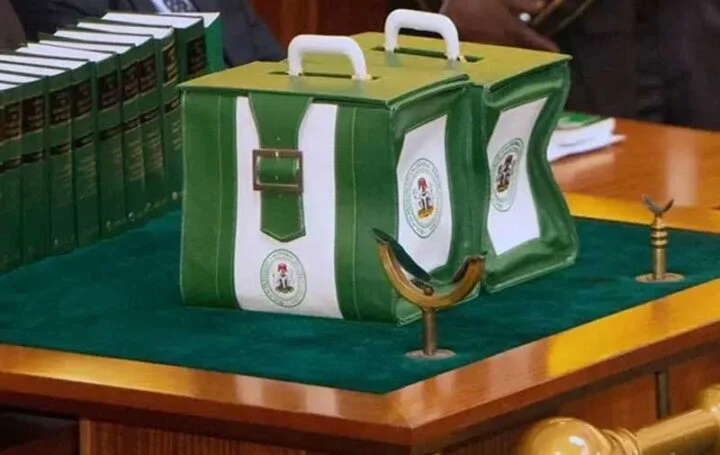The 2025 appropriation bill has passed the second reading at the national assembly.
The budget cleared the second reading during plenary on Thursday following an extensive debate by legislators in the Senate and the House of Representatives.
On Wednesday, President Bola Tinubu presented a record N49.7 trillion as the proposed budget for 2025 to a joint session of the upper and lower legislative chambers.
The lawmakers, during plenary on Thursday, took turns discussing the general principles of the money bill, offering recommendations that included thorough scrutiny of the budget breakdown during engagements with heads of ministries, departments, and agencies (MDAs).
Leading the debate, Julius Ihonvbere, majority leader of the green chamber, said the budget would improve the nation’s economy and consolidate the achievements of the president.
In his debate, Kingsley Chinda, minority leader, said Tinubu’s assertion that the budget would reduce inflation from the current 34.6 percent to 15 percent is “ambitious” and not realistic.
The ranking lawmaker said the allocation of N4.91 trillion to defence and security “will not take us to the promised land.”
He added that the budget should also prioritize human capital development and environmental sustainability.
“The budget might appear very beautiful, but there is much more for us to do as a nation,” Chinda said.
‘2025 BUDGET IS INADEQUATE’
Oluwole Oke, a Peoples Democratic Party (PDP) member from Osun, stated that the budget is “grossly inadequate” and won’t sufficiently fund development projects.
Abdussamad Dasuki from Sokoto supported Oke’s position, describing the budget as inadequate.
“The budget may look robust on paper, but if you convert it to dollars, you will realize that the budget is not where we should be,” he said.
“With the challenges we have, if you convert it to dollars, the nation will be inadequately provided for. I urge the relevant committees, particularly the committee on finance, to work on this.”
Also speaking, Ismaila Dabo from Bauchi called for an increased allocation to the agricultural sector to boost food production.
“Inflation is on food items, and Nigerians are finding it difficult to cope. I urge the house to do everything possible to ensure enough allocation is reserved for agriculture,” he said.
Some lawmakers from the north-east and south-east geopolitical zones demanded more funding for their development commissions.
The lawmakers unanimously voted in support of the bill when it was put to a voice vote by Benjamin Kalu, the deputy speaker, who presided over the session.
Kalu referred the bill to the committees on appropriation for further legislative work.
He said the bill will be passed before January 30.
In November, both chambers approved the 2025-2027 medium-term expenditure framework (MTEF) and fiscal strategy paper (FSP) of the federal government.
The parliament passed the oil benchmark prices of $75, $76.2, and $75.3 for the daily crude oil production of 2.06 million, 2.10 million, and 2.35 million for the 2025-2027 fiscal years respectively.
Also, the national assembly maintained the gross domestic product (GDP) growth rate projected at 4.6 percent, 4.4 percent, and 5.5 percent for the three years in the fiscal strategy paper.
The lawmakers endorsed the projected exchange rate of N1,400/$ but said it is subject to review in early 2025 according to monetary and fiscal policies.

 BIG STORY2 days ago
BIG STORY2 days ago
 BIG STORY4 days ago
BIG STORY4 days ago
 BIG STORY5 days ago
BIG STORY5 days ago
 BIG STORY4 days ago
BIG STORY4 days ago
 BIG STORY2 days ago
BIG STORY2 days ago
 BIG STORY3 days ago
BIG STORY3 days ago
 BIG STORY2 days ago
BIG STORY2 days ago
 BIG STORY16 hours ago
BIG STORY16 hours ago
























